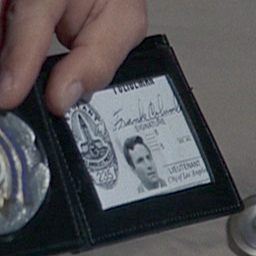Finding Columbo
From 1968 through 1978, and again from 1989 until 2003, actor Peter Falk graced television screens as Lieutenant Columbo, a homicide detective with the Los Angeles Police Department. The television show. The show, named Columbo after its main character, wasn’t your standard one. There were very few episodes given the ten-season and decades-long run — only 69 were ever produced. Each episode was feature-length, running between 73 and 100 minutes, excluding commercials, and the last 14 episodes were released at the rate of roughly one per year. And even then, the creators of Columbo were out of the box thinkers. Instead of the typical “whodunit” type of cop drama, Columbo episodes typically began by showing the viewer the murder in progress, revealing the identity of the assailant in the process. The story arc followed Lt. Columbo as he pieced together the clues, but few details were unknown to the viewer along the way.
There was one notable exception, though — especially in the world of trivia. Viewers weren’t explicitly told what Columbo’s first name was. And this somehow managed to lead to a $300 million lawsuit — in real life, not on the show.
There are a few shows with running gags where a character clearly knows the answer to something but we, the viewers, simply don’t. If you’re a fan of the Simpsons, they explicitly avoid telling us what state Springfield is in, for example. Columbo’s first name kind of falls in this category. In the opening credits, Peter Falk is credited as “Columbo,” with no first name given, and never in the 69 episodes does the character speak his first name. But a careful viewer may pick up on the moment below, from an episode from 1971, where the detective’s police ID card clearly says that he’s “Frank Columbo.” This is probably the correct answer, canonically; Universal Studios released a DVD box set of some of the early seasons of the show, and the name Frank is there, too.

But let’s face it: most people don’t pick up on such trivial details. This includes some people for whom trivia is a living, such as a man named Fred L. Worth.
In 1974, Worth published “The Trivia Encyclopedia,” a 300-plus page tome of minutiae One of the questions asked what Columbo’s first name is, and Worth’s book claimed that “Phillip” was the correct answer. This is incorrect, as noted above, but it isn’t an error per se. Worth made up the answer entirely and intentionally. He figured that if any other books subsequently claimed that Columbo’s first name was Phillip, that publisher would have ultimately “learned” the fact from his book — they had to have, because no one else could be the source for a fact that Worth had made up.
The trap worked — at least in the short-term. A while later, Trivial Pursuit published a board game which included a question about Columbo’s first name, using “Phillip,” not “Frank,” as the correct answer. Worth sued, claiming that Trivial Pursuit has stolen his intellectual property by re-using his made-up fact (and likely, had plagiarized many other facts from his book) without credit or compensation. He demanded $300 million for the violation of his copyright.
Trivial Pursuit’s publishers admitted that they used Worth’s book (and others) as sources, but Worth lost his lawsuit anyway. The federal court held that facts cannot be protected by copyright — even the made up ones. Worth lost on appeal and the U.S. Supreme Court declined to take the case.
Bonus fact: In early 2012, Smithsonian Magazine interviewed Simpson’s creator Matt Groening, asking him “why do the Simpsons live in a town called Springfield? Isn’t that a little generic?” Groening’s reply notes that the selection was based on Springfield, Oregon, in his home state. Many took that to mean that the Simpsons lived in Oregon — but they were wrong. On the April 15, 2012 episode, the Simpsons opening featured Bart at the chalkboard, writing “the true location of Springfield is in any state but yours.”
From the Archives: No Copying Grandma: Why Walmart may not reproduce that family photo for you.
Related: “The Trivia Encyclopedia” by Fred L. Worth. No reviews, sorry. (On the other hand, if you want a trivia book with lots of 5-star reviews, do I have a book for you!)
